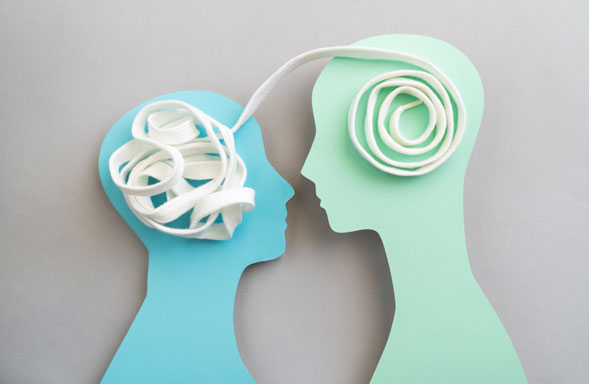Who Am I in Relationships? Understanding Your True Self in Love

Who Am I in Relationships? Understanding Your True Self in Love
Key Takeaway
- The person you become in relationships might be very different from who you truly are - and recognising this gap is the first step toward deeper, more authentic connections.
- Have you ever caught yourself thinking, "I don't even recognise myself in this relationship"? Or perhaps you've felt like you've lost your sense of self entirely?
- 'With the right environment we can be the truest version of ourselves,' but first, we need to understand who that true self actually is—especially when navigating love across cultures in the diverse landscape of the Middle East.
- For many couples in Dubai and throughout the region, this question becomes complex when cultural expectations, family traditions, and modern relationship ideals intersect.
The Hidden Self That Emerges in Love
When we enter relationships, something fascinating happens.
We all carry different aspects of ourselves—some confident and secure, others wounded and protective. According to Internal Family Systems (IFS) therapy, these "parts" of ourselves often compete for control, especially when we're feeling vulnerable in love.
The challenge? Sometimes the parts that show up aren't the ones that lead to trust, respect, and communication that research shows are essential for healthy relationships. Instead, we might find ourselves operating from old survival strategies that once kept us safe but now keep us from truly connecting.
Think about it: Are you the same person with your partner as you are with your closest friend? When you're alone? Most of us aren't, and while some adaptation is natural, the question becomes: which version of yourself is driving your relationship, and is it serving your connection?
When Past Wounds Drive Present Love

Imago Relationship Theory reveals that we unconsciously choose partners who mirror both positive and challenging aspects of our early caregivers. This isn't coincidence—it's our psyche's attempt to heal old wounds by recreating familiar dynamics.
In multicultural environments like Dubai and the broader Middle East, this process becomes even more intricate. You might find yourself balancing relationship patterns you learned in your culture of origin with expectations of your current environment, your partner's cultural background, or the cosmopolitan lifestyle of the UAE.
When those old wounds get activated—perhaps triggered by cultural misunderstandings or conflicting family expectations—we often respond from our "adaptive self" rather than our authentic self. This "adaptive self" developed strategies early in life to get love, avoid abandonment, or stay safe within specific cultural contexts.
In adult relationships, these strategies might look like:
- The People-Pleaser: Always saying yes, avoiding conflict, slowly losing yourself in the process
- The Pursuer: Desperately seeking reassurance, becoming clingy when feeling disconnected
- The Distancer: Shutting down emotionally, creating space when intimacy feels overwhelming
- The Perfectionist: Setting impossibly high standards to avoid disappointment
None of these adaptations are "bad"—they served a purpose once. But when they're running your relationship, the trust and mutual respect that define healthy connections become nearly impossible to maintain.
If you’d like to understand which of these patterns might be guiding your own relationships, you can download the free self-discovery quiz.
The Dance of Disconnection
Dr. John Gottman's research shows us that successful relationships aren't about avoiding conflict—they're about how couples navigate disconnection and repair. But when we're operating from our adaptive selves, these repair attempts often fail because we're not actually showing our partner who we really are.
Consider this common cycle:
- Trigger moment: Something happens that activates an old wound
- Adaptive response: A protective part takes over (criticism, defensiveness, withdrawal)
- Partner reaction: Your partner responds to your adaptive self, not your true self
- Escalation: Both partners are now relating to each other's protective strategies
- Lost connection: Neither person feels seen or understood for who they truly are
This is what Emotionally Focused Therapy (EFT) calls a "negative cycle." It's not really about the surface issue you're arguing about—it's about two people trying to get their core needs met through strategies that actually push their partner away.
Finding Your Way Back to You

So how do you break free from these patterns and reclaim your authentic self in love? Here are some research-backed strategies:
Practice Mindful Self-Awareness
Start noticing when you're operating from an adaptive part. Ask yourself:
- How do I typically respond when I feel hurt or scared in my relationship?
- What patterns do I fall into that don't feel like the "real me"?
- When do I feel most like myself with my partner, and when do I feel furthest away?
Communicate from Your Core
Instead of just expressing frustration or demands, try sharing what's happening underneath:
- "When you came home late, the scared part of me worried you were pulling away"
- "I know I got critical, but honestly, I was feeling really unimportant"
- "Part of me wants to shut down right now, but I don't want to disconnect from you"
Navigate Cultural Complexity with Authenticity
For couples in Dubai and across the Middle East, honouring both your cultural heritage and individual authenticity requires special attention:
- Discuss which cultural traditions feel meaningful to you personally versus those you follow out of obligation
- Share how your cultural background shaped your views on love, conflict, and intimacy
- Create space to honour both partners' cultural identities without losing your individual selves
The Journey Back to Authentic Love

Reconnecting with your authentic self in relationships isn't a one-time event—it's an ongoing practice that requires courage, self-compassion, and patience. It means learning to honour the parts of yourself that adapted to survive while choosing responses that help you thrive.
Remember: your partner fell in love with glimpses of your true self.
When you can show up authentically—not perfectly, but genuinely—you give your relationship the gift of real intimacy and the possibility for trust, respect, and communication that makes love last.
When to Seek Support

If you find yourself consistently stuck in reactive patterns or feeling like you've completely lost who you are, working with a relationship counsellor can be transformative.
For couples in Dubai and the Middle East, finding a therapist who understands both relationship dynamics and cultural sensitivities is particularly valuable.
Your relationship journey isn't just about finding the right person—it's about having the courage to be the real you. And that journey back to your authentic self? It's one of the most loving gifts you can give both yourself and your partner.
What part of yourself are you ready to bring more fully into your relationship?
Ready to be yourself? As a trauma-informed Mental Health Coach and offering Relationship Therapy, I provide a safe space where your experiences are validated and your healing is prioritised.
Book a free introductory call to explore how you can be supported along your path forward.
All cultures, all backgrounds, all love stories are welcome.
About the Author
Evelyne L. Thomas is an experienced Mental Health Coach and Couples Therapist based in Dubai specialising in cross-cultural relationships, interfaith marriages, and expat family dynamics. With experience supporting couples for over 10 years and over 40 years-experience of living and working in the UAE, she brings cultural sensitivity and holistic healing approaches to Mental Health and Relationship Therapies in the UAE. She works with English & French speaking clients online worldwide or in person in Dubai.
Never Miss a New Journal Entry
Join the newsletter to stay up to date on the latest from the blog and get answers on mental health and relationships.


.jpg)





